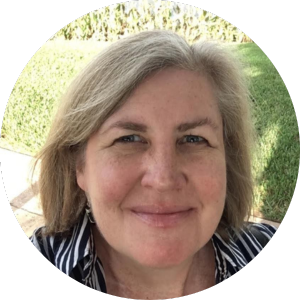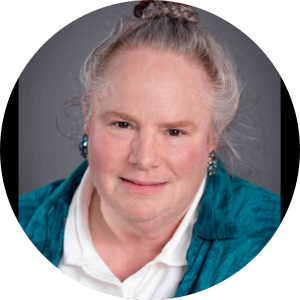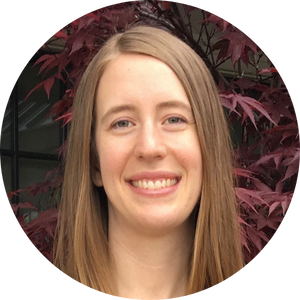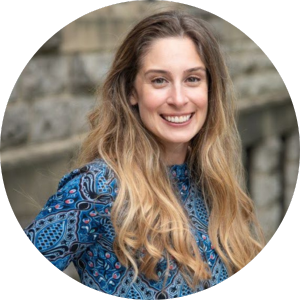- About MAA
- Membership
- MAA Publications
- Periodicals
- Blogs
- MAA Book Series
- MAA Press (an imprint of the AMS)
- MAA Notes
- MAA Reviews
- Mathematical Communication
- Information for Libraries
- Author Resources
- Advertise with MAA
- Meetings
- Competitions
- Programs
- Communities
- MAA Sections
- SIGMAA
- MAA Connect
- Students
- MAA Awards
- Awards Booklets
- Writing Awards
- Teaching Awards
- Service Awards
- Research Awards
- Lecture Awards
- Putnam Competition Individual and Team Winners
- D. E. Shaw Group AMC 8 Awards & Certificates
- Maryam Mirzakhani AMC 10 A Awards & Certificates
- Two Sigma AMC 10 B Awards & Certificates
- Jane Street AMC 12 A Awards & Certificates
- Akamai AMC 12 B Awards & Certificates
- High School Teachers
- News
You are here
2024 Summer Workshops

MAA OPEN Math is back. We are excited to offer seven workshops for Summer 2024. Each workshop provides online, teaching-focused professional development in mathematics. Descriptions and registration information is listed below. We hope to see you this summer!
Please note all workshop times are listed in EASTERN TIME.
Minority-Serving Institutions: A special price is available to you. Simply enter the discount code MSI2024 at checkout and receive $50 off registration!
Team-Based Inquiry Learning
June 24, 25, 26, 27 & 28 | 11am-5pm ET
Team-Based Inquiry Learning (TBIL) is a structured form of active learning that uses the structure of Team-Based Learning as a means of bringing inquiry into lower division courses. This workshop will provide instructors with an overview of how to use TBIL in their courses, as well as give an introduction to the TBIL resource library, which includes a complete set of materials for teaching Calculus I, Calculus II, and Linear Algebra via TBIL. The registration deadline has passed, but you can still join the waitlist.
PRESENTERS
Drew Lewis, Tien Chih, Francesca Gandini, Joe Hibdon, Tonya DeGeorge & Jordan Kostiuk
About the Presenters
 Drew Lewis is a higher education consultant and leads the NSF-funded Team-Based Inquiry Learning project. He is a Team-Based Learning Collaborative certified Trainer-Consultant and is experienced in providing faculty development around topics such as Team-Based Learning, alternative grading, and inclusive teaching.
Drew Lewis is a higher education consultant and leads the NSF-funded Team-Based Inquiry Learning project. He is a Team-Based Learning Collaborative certified Trainer-Consultant and is experienced in providing faculty development around topics such as Team-Based Learning, alternative grading, and inclusive teaching.

Tien Chih is an Assistant Professor of mathematics at Oxford College of Emory. He was a participant in the first TBIL workshop offered in 2021, and has been implementing TBIL in his classes since. He is one of the co-authors of “Calculus for Team-Based Inquiry Learning”, a freely available activity book designed to help instructors more easily implement TBIL in their courses.
 Francesca Gandini is an Assistant Professor of Mathematics, Statistics, and Computer Science at St. Olaf College. She was a participant in the first TBIL workshop offered in 2021 and has been working on the TBIL project ever since. She is also one of the co-authors of “Calculus for Team-Based Inquiry Learning”, and has previously run virtual workshops for the Alliance for Michigan IBL.
Francesca Gandini is an Assistant Professor of Mathematics, Statistics, and Computer Science at St. Olaf College. She was a participant in the first TBIL workshop offered in 2021 and has been working on the TBIL project ever since. She is also one of the co-authors of “Calculus for Team-Based Inquiry Learning”, and has previously run virtual workshops for the Alliance for Michigan IBL.

Joe Hibdon is an Associate Professor of mathematics at Northeastern Illinois University. He was a participant in the first TBIL workshop offered in 2021, and has been implementing TBIL in his classes since. He is also one of the co-authors of “Calculus forTeam-Based Inquiry Learning”. He has done extensive work, including on several grant projects, on broadening participation in STEM and mathematics in particular.

Jordan Kostiuk is a Senior Lecturer at Brown University. He has been teaching Linear Algebra with TBIL since Fall 2022 after attending a TBIL workshop in the Summer of 2022. In order to accommodate the ~600 students/year in this course, Jordan trains graduate students and postdocs to facilitate TBIL lessons, allowing for a coordinated multiple-section implementation of TBIL with sections of 48 students.
Designing Professional Development Programs for Graduate Teaching Assistants
July 9, 10, 11 & 18 | 11am-5pm ET
Is your department interested in helping graduate students learn to teach? Perhaps your department is considering starting a teaching-focused professional development program? Or maybe your department has a program but is interested in updating and enhancing it?
Many departments now offer pre-semester orientations, semester-long seminars, and other opportunities for graduate students who are new to teaching so they will be well-equipped to provide high-quality instruction to undergraduates.
This workshop will provide guidance on the design of mathematics department-based professional development programs about teaching for graduate students. Each day will include several hours of synchronous and asynchronous activities, plus work time. At the workshop, participants will:
- learn how to design a successful graduate student professional development program
- gain familiarity with research and evaluation related to teaching and instructor preparation
- gain access to a large collection of lessons, activities, and assignments to use in your program
Departments are encouraged to send two-person teams to the workshop. This workshop is full, but you can still join the waitlist.
PRESENTERS
Natasha Speer, Jack Bookman, Emily Braley, Ian Thackray, Shandy Hauk & TJ Murphy
About the Presenters
 Natasha Speer is a faculty member at The University of Maine, affiliated with the Department of Mathematics and Statistics and the Maine Center for Research in STEM Education. Her work includes design of materials and programs for teaching-focused professional development as well as education research on the teaching of undergraduate mathematics.
Natasha Speer is a faculty member at The University of Maine, affiliated with the Department of Mathematics and Statistics and the Maine Center for Research in STEM Education. Her work includes design of materials and programs for teaching-focused professional development as well as education research on the teaching of undergraduate mathematics.

Jack Bookman is Professor of the Practice, Emeritus in Mathematics at Duke University. Since 1987, in addition to teaching mathematics, he has been preparing graduate students in Mathematics for their teaching responsibilities.
 Emily Braley is an Associate Teaching Professor in Mathematics and the Assistant Dean of Undergraduate Academic Affairs at Johns Hopkins University. Emily oversees the teaching orientation for new TAs in math and facilitates a teaching seminar for all first-year graduate students in mathematics. Her work includes supporting STEM departments to cultivate researched-based practices in STEM teaching and in their undergraduate curriculum assessment efforts. She supports the training and implementation of undergraduate learning assistants across the school of Arts and Sciences.
Emily Braley is an Associate Teaching Professor in Mathematics and the Assistant Dean of Undergraduate Academic Affairs at Johns Hopkins University. Emily oversees the teaching orientation for new TAs in math and facilitates a teaching seminar for all first-year graduate students in mathematics. Her work includes supporting STEM departments to cultivate researched-based practices in STEM teaching and in their undergraduate curriculum assessment efforts. She supports the training and implementation of undergraduate learning assistants across the school of Arts and Sciences.

Ian Thackray (he/him) is a Masters of Science in Teaching student at the University of Maine. His research focuses on investigating the mathematical knowledge for teaching average rate of change of post-secondary teachers, and has been developing and adapting online Calculus activities over the last 5 years for Matheno. He helps maintain and upload resources to the CoMInDS Resource Suite, manages the CoMInDS Hub and helps with various background activities during workshops.

Shandy Hauk (she/her), San Francisco State University | I grew up in and around Los Angeles. My BA is in theater and film-making and my first California teaching credential was in English. I taught middle and high school (mostly) for about 5 years before quitting teaching, mortgaging my house, and returning to university in math. Finished a PhD in math at UC Irvine, then a post-doc in math ed at Arizona State. Current projects include Expanding Equity and Access in Discrete Mathematics, CoMInDS, and College Math Video Cases.

TJ Murphy (she/her) is a professor in the Department of Engineering & Computing Education at the University of Cincinnati (#NotAnEngineer). Her background is research in undergraduate education. She has a history of studying retention of undergraduate engineering majors, especially those from marginalized or minoritized backgrounds. Her other area of work has been on the professional development of graduate teaching assistants in mathematics and in engineering.
Engaging Multivariable Calculus Students using CalcPlot3D and 3D-Printed Surfaces
July 22, 23, 24 & 25 | 11am-5pm ET
Learn to use CalcPlot3D and hands-on explorations with 3D-printed surfaces to help your students visualize and better understand a variety of three-dimensional calculus concepts. Explore planes, motion along a curve, surfaces, contour plots, partial derivatives, gradients, directional derivatives, constrained optimization, regions of integration, vector fields, and many more topics from multivariable calculus.
Learn the features of CalcPlot3D and how to use it effectively in your teaching. Work with other participants in small groups to explore a variety of topics using CalcPlot3D. Learn to use a scripting feature in CalcPlot3D to create dynamic slideshows for classroom demonstrations and for hands-on student concept explorations. This workshop is full, but you can still join the waitlist.
PRESENTERS
Paul Seeburger, Deborah Moore-Russo, Stepan Paul & Shelby Stanhope
About the Presenters

Paul Seeburger has been teaching math at Monroe Community College since 1998. He developed the CalcPlot3D app to help students visualize multivariable calculus and is now lead-PI on an NSF IUSE project focused on expanding CalcPlot3D’s 3D-printing features and developing hands-on guided learning activities using 3D-printed surfaces to improve student understanding of multivariable calculus concepts. Paul has presented in-person minicourses on the CalcPlot3D project at MathFest, the Joint Math Meetings, and ICTCM, and two online workshops for the MAA’s Project NExT.

Deborah Moore-Russo is a Professor of Mathematics and the First-Year Mathematics Director at the University of Oklahoma (OU). She studies the multiple ways a single mathematical concept is conceptualized, represented, visualized, and communicated. She looks at how physical and digital instructional resources, as well as instructional tasks, influence student learning. She also thinks about whether instructional decisions help students perceive mathematics as a dynamic, engaging discipline that goes beyond memorization of rules and equations.

Stepan Paul is a Teaching Assistant Professor of Mathematics at North Carolina State University, where he has taught since 2020. He works on developing novel illustrations of concepts in calculus and geometry with dynamic geometry software and digital fabrication. He currently coordinates the multivariable calculus course at NC State and organizes the departmental Teaching and Learning Seminar.

Shelby Stanhope is an Associate Professor of Mathematics at the U.S. Air Force Academy. Her work focuses on innovative teaching methods in multivariable calculus, aiming to help students grasp three-dimensional concepts through tactile activities using 3D-printed models, computer visualization with CalcPlot3D, and experiential learning field trips.
Implementing Research-Based Instruction in Introductory Proofs Courses
July 29-30 & August 1-2 |11am-5pm ET
The Proofs Project, an NSF-funded project, will provide a research-based professional development experience for instructors of introductory proofs courses, whether they’re teaching for the first, fifth, or fiftieth time. The purpose of the workshop is to support instructors’ efforts to elicit and meaningfully address some of the persistent challenges (epistemological obstacles) students experience when proving. Participants will have access to research-based tasks and instructional modules (with video of actual classroom interactions) intended to support students’ development of logical structures necessary for mastering proofs and proving. During the workshop, participants will design their own research-based unit or lesson plan addressing challenges associated with learning to prove. They can take advantage of related tasks designed to elicit and address epistemological obstacles that their students might experience in the classroom. Then, participants will have the opportunity to share their lessons and units with each other, so that they might benefit from the collective ideas generated by workshop participants. Ultimately, this workshop will build community among introductory proofs instructors as we take on the challenge of implementing effective research-based instruction. To learn more about the Proofs Project, please visit our website. The deadline to register for this workshop is June 18, 2024 at 11:59 PM.
PRESENTERS
Rachel Arnold, Andy Norton & Corinne Mitchell
About the Presenters

Rachel Arnold is a Collegiate Associate Professor of Mathematics at Virginia Tech and the recipient of the university’s 2022 Alumni Award for Excellence in Teaching. Her passion lies in understanding students' mathematical reasoning as they transition to proof-based mathematics. She currently serves as PI on an NSF-IUSE grant and Co-PI on the 4-VA Initiative grant that fund “The Proofs Project.” The research-based instructional tools that she designs support students' abstraction of logical reasoning that is fundamental for advanced STEM study. Rachel has also designed and coordinated the professional development program for graduate mathematics student teachers at Virginia Tech since 2014. She has extensive experience leading workshops centered on the effective teaching and learning of mathematics.

Andy Norton is a Professor in the Department of Mathematics at Virginia Tech, where he also serves as Graduate Program Director. He conducts research at the intersection of mathematics and psychology, building models of students’ mathematics.

Corinne Mitchell is a first-year PhD student in mathematics at Virginia Tech. Her research focuses on the pedagogical practices of mathematicians, with an eye towards how they support high-level classroom discourse in proof-based math courses. Corinne’s master’s thesis investigated the facilitation of a professional development designed to support teachers taking up the Inquiry-Oriented Abstract Algebra curriculum materials. She is currently serving as a graduate research assistant on the Proofs Project.




